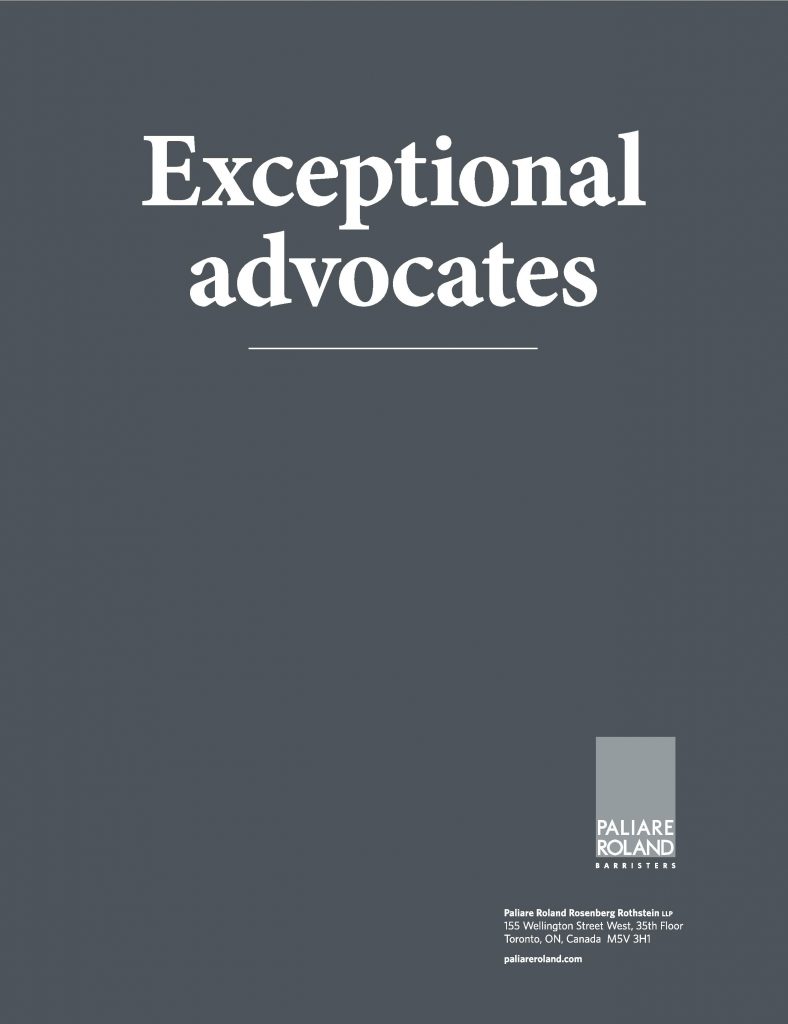Remote work and school have been the new normal for a year. We have all adjusted to doing pretty much anything social via Zoom. Classes, moots, OCI’s, exams and even Mock Trial have all moved to the online world. Even courts have had to adjust to trials via Zoom. This new reliance on Zoom has created a new anxiety – forgetting to mute. Most of us have accidentally un-muted during a Zoom call and broadcasted unintended information. Although the typical result is a moment of slight embarrassment, in some cases the result can be more dramatic.
In a motion heard at the family court in the Ontario Superior Court of Justice on February 25, 2021, the Honourable Madam Justice L. Bale refused to grant a mother’s request for a mistrial in a child protection proceeding. The request stemmed from an incident on the eighth day of the proceeding. The court was on recess and all parties were to turn off their video and mute their mics.
Unfortunately for the mother, she had forgotten to mute her mic and an exchange between her and an unknown 3rd party was broadcast into the courtroom. The exchange was two sentences, an unknown male voice was heard asking “how much longer will you be” and “hook some people up with some soft”, or similar words to that effect. Submitted factums explained that “soft” is a street term for powdered cocaine.
The overheard exchange raised both procedural and substantive concerns. The procedural concern was that an unknown male was in the room with the mother and was potentially influencing her evidence. The substantive concern was “whether new child protection concerns arose from a reference to a potential drug transaction made by the unknown third party.”
The mother’s position was that the judge had become a witness to an issue in dispute in the proceeding since opposing counsel’s account of the exchange was inconsistent with the mother’s explanation. She explained that nobody was in the room with her, but she had played an old voice clip from her phone and that’s what the court overheard. She also argued that the information overheard was relevant to the substantive issues at trial since the child protection matter contained allegations of drug use and allegations of the mother’s association and intimate relationships with inappropriate persons. Interestingly, the mother did not raise a claim of reasonable apprehension of bias regarding the judge. In essence, her position was that the overheard reference to “soft” was so prejudicial that a fair trial was no longer possible.
Both the respondent father and the Children’s Aid Society (CAS) were strongly opposed to the motion. The Society argued that recusal of a judge and a mistrial are “inextricably linked” and a mistrial cannot be granted unless there has been a finding of real or a reasonable apprehension of bias. The Society also argued that the overheard exchange could only be considered relevant to the mother’s demeanour. Finally, they argued that a declaration of a mistrial is a last resort measure and there were other less drastic remedies available to the court. The CAS claimed that a declaration of a mistrial would be a significant miscarriage of justice.
The respondent father opposed the motion on similar grounds to the CAS but added that for public policy reasons it would not be permissible for the mother to rely on her own mistake to delay the child protection matter as “she is the author of her own dilemma” and is the only one who would benefit from a declaration of a mistrial.
Counsel for the Six Nations of the Grand River made submissions in support of the mother’s request for a mistrial. They argued that the court had become a witness to the overheard exchange, the content of that exchange went to the heart of the child protection matter and the judge had a positive duty to act protectively in matters like these.
The court gave a helpful summary of the caselaw submitted by counsel on the law applicable to motions for mistrials. The caselaw confirms that:
a. Mistrial orders are discretional;
b. A mistrial may be declared where a judge is satisfied that there is a reasonable apprehension that either party will not have a fair trial if it continues (and that a fair trial would be possible if it were to begin afresh before another judge);
c. Mistrials should be ordered only where there has been a ‘fatal wounding’ of the trial process;
d. Mistrials should only be granted as a last resort, where no other curative measure could salvage a just and fair trial; and
e. Parties are entitled to fair trials, not perfect trials.
In applying these principles, the judge dismissed the mother’s motion finding there was no sufficient basis on which to declare a mistrial and recuse themselves of the child protection proceeding.
Justice L. Bale found that the information overheard was not significant enough to have had a determinative impact on the outcome of the child protection matter, even if the information could have been considered by the judge. She also found that the court could disabuse itself of the overheard information as judges play a gatekeeping function for the admissibility of evidence. In that function, judges must hear but remain unaffected by inadmissible evidence. Further, she considered the policy concern of wasted court resources in granting a mistrial at this late stage in the proceedings. She agreed with the father and CAS that the collective interests of the child, the parties and the public weighed in favor of continuing the trial. Finally, she found that the only curative measure necessary to ensure a fair trial was simply for it to continue with re-examination of the mother and the mother’s calling of witnesses in the ordinary course.

